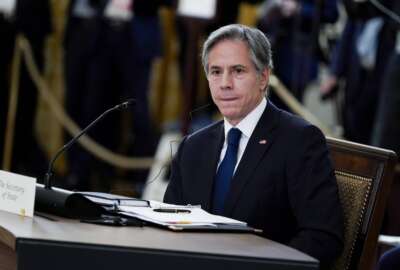
Agencies finding DEIA programs an ‘incredibly important retention strategy’
As the federal government struggles to find ways to recruit new talent and retain current employees, some agencies are finding success through diversity, equity,...
As the federal government struggles to find ways to recruit new talent and retain current employees, some agencies are finding success through diversity, equity, inclusion and accessibility (DEIA) working groups.
“I have heard that being a part of an employee resource group (ERG), going to these conversations, knowing that those conversations around diversity are happening have been critical to them staying within the agency,” said Sangita Chari, program manager for the Office of Relevancy, Diversity and Inclusion at the National Park Service, during a June 1 Leadership Connect panel. “Many times when they have been frustrated, they’ve been able to go to an ERG meeting and feel connected and rejuvenated. And it’s particularly important in an organization like [NPS] where our employees are just dispersed everywhere.”
Chari said one of the biggest challenges in the DEIA space is aligning employee expectations with leadership. Often, employees expect change to happen faster and see more urgency behind the issue. Regular communication and transparency between field employees and leadership is necessary to build trust.
But trust in leadership has been suffering across federal agencies. The Federal Employee Viewpoint Survey asks employees to rank the performance of supervisors, managers and senior leaders. Typically, immediate supervisors receive higher scores than top agency leadership. For federal employees, there will most likely always be a gap in those perceptions.
But for 2022, the governmentwide gap was much steeper than usual. The overall leadership category in the Partnership for Public Service’s Best Places to Work rankings — largely reliant on data from the FEVS — had a score of 67.3 out of 100 for 2022, a 0.7-point decline since 2021. Supervisors received a score of 79.7, about 25 points higher than senior leaders’ score of 55.3.
Lisa Boykin, chief diversity officer for the Bureau of Alcohol, Tobacco, Firearms and Explosives, said that employee satisfaction and trust in leadership are two of the most important metrics agencies can use to measure the success of their DEIA programs.
“That can represent itself in a number of different ways,” Boykins said during the panel. “People feel like they’re more open to communicate. They may attend more events. They may see a purpose in doing that. They may come up with different ERGs.”
Chari said buy-in from just a few leaders can help shift the culture of an organization. The more leaders commit to DEIA, the more expectations and deliverables get set, and the more leadership gets engaged and pushes the conversation forward.
“What’s happened then is some of the programs that we had developed over time, particularly our employee resource groups — we have a facilitated dialog program called Allies for Inclusion, we hold monthly calls on different topics — they’re getting greater attention, more participation, and they’re starting to really work on figuring out how do we use the voices of employees to push shifts in our culture,” she said.
That’s important, she said, because culture doesn’t shift based on the law or the right thing to do. It shifts because of a strategy, because people feel that they need to have that culture change, not just because it would be nice to.
That culture shift also starts slowly, both Chari and Boykin said, amongst small groups of employees who are passionate about the subject. Smaller groups can get together, create spaces for dialogue, and start the conversation. From within those groups, leaders will appear who can push the conversation forward and start to move the needle.
But those people also need to be ready for failure, Chari said. There will be setbacks.
“Programs have to be resilient going forward because everyone doesn’t embrace the topic or the notion,” Boykin said. “And you have to really stand in the conversation and be assured that your goal is to make sure culture change happens.”
That’s why it’s important, Chari said, for those leading the conversation to be as educated as possible about the issues surrounding DEIA. Passion for the subject isn’t enough; leaders in the topic need to read the books, take the courses, and put in the work to know more than anyone in the room about the subject.
“You’ve got to be able to have the confidence to speak up,” she said. “When nobody else is willing to speak up and to say things that maybe people aren’t comfortable hearing.”
But it can be hard to do that, she said, when nobody else in the room is talking about these things. And it shouldn’t fall to the only person of color in the room to do so, she added. That’s why another thing leadership can do to prove their commitment to DEIA is create a specific office with a clear role to push that conversation forward.
Boykin said that’s precisely what happened at ATF, with the creation of the first chief diversity officer. That gave employees a specific place to bring their concerns. She said she works closely with the agency’s ombudsman and chief equal opportunity employment officer to develop an overall DEIA philosophy for the agency, and to provide a forum for conversations with people that may be struggling.
“It has raised not only awareness, but acceptance that the conversation is here to stay,” she said. “When you see it at a level where you’re reporting to the deputy director of an organization, I think now we get the picture. This is not going anywhere. So the conversation is here to stay.”
Copyright © 2025 Federal News Network. All rights reserved. This website is not intended for users located within the European Economic Area.
Daisy Thornton is Federal News Network’s digital managing editor. In addition to her editing responsibilities, she covers federal management, workforce and technology issues. She is also the commentary editor; email her your letters to the editor and pitches for contributed bylines.
Follow @dthorntonWFED
Related Stories





